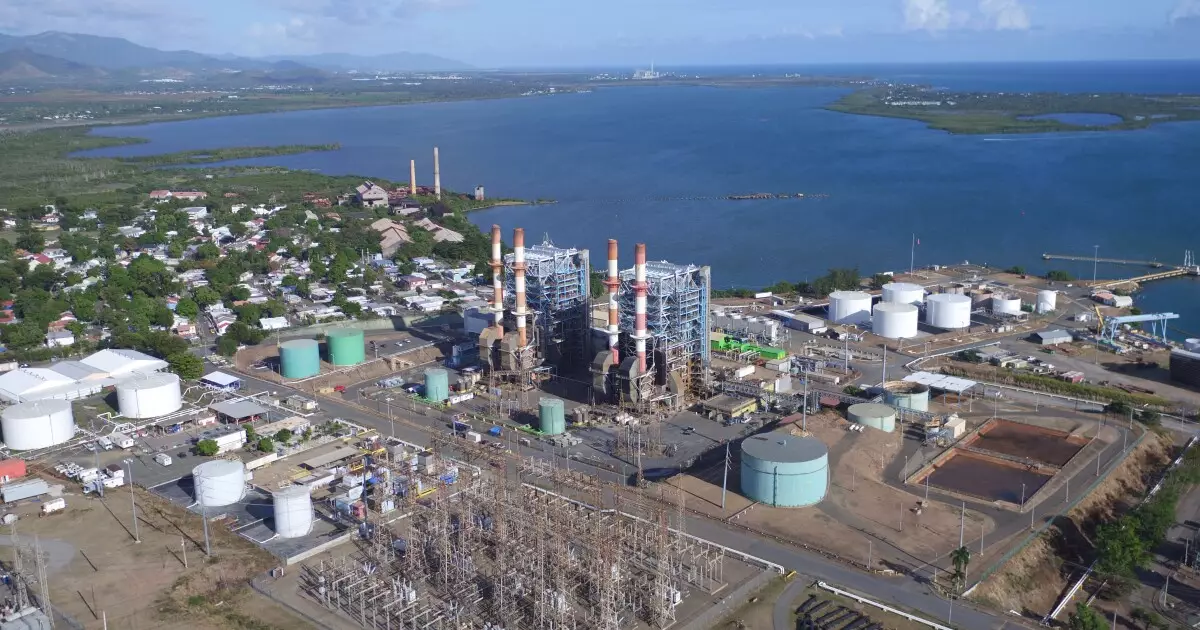In the ongoing economic turmoil surrounding Puerto Rico, a high-stakes clash between the Puerto Rico Oversight Board and bondholders of the Puerto Rico Electric Power Authority (PREPA) has emerged. Central to this debate is the astronomical $3.7 billion administrative expense claim posited by PREPA’s bondholders as they navigate the waters of bankruptcy. Yet, this is not just a simple matter of financial reckoning. Rather, it’s a complex interplay of governance, legal maneuvering, and ethical considerations that could dictate the financial landscape of Puerto Rico for years to come.
The Oversight Board’s Defense: A Stance on Subordination
The Puerto Rico Oversight Board, a federal entity charged with ensuring fiscal discipline and restructuring the island’s crippling debt, contends that the PREPA bondholders’ claims should be subordinate to those of other creditors. This differentiation serves as a critical pivot point in the larger narrative of Puerto Rico’s financial recovery, albeit one that raises eyebrows about the dynamics of power. The Board’s assertion that bondholders are attempting to seize central government funds “they aren’t entitled to” adds fuel to an already fiery public discourse. How did we arrive at a point where essential public services and the future of an entire region hang in the balance over such intricate financial jargon?
A Question of Constitutional Interpretation
The bondholders have attempted to employ “constitutional avoidance” as a mechanism to navigate the waters of convoluted financial statutes, an approach that the Oversight Board labels as a flawed interpretation. The defense pivots sharply here, stating that such constitutional principles only apply under ambiguous circumstances—an assertion that underscores the volatility of Puerto Rico’s legal landscape. This conflicting interpretation calls into question whether the actions taken by these bondholders are genuinely about reclaiming funds or simply a maneuver to manipulate fiscal statutes for their gain. It’s a moral dilemma cloaked in legalese that highlights how far removed the bondholders, and indeed the financial institutions they represent, have become from the ideal of serving public interest.
The Bondholders’ Counterarguments: Claiming Rights Amidst Controversy
On the other end of this spectrum, the bondholders doggedly maintain that the bankruptcy code entitles them to a rightful administrative expense claim—a claim they argue stands resolute in the face of the Oversight Board’s tough stance. They contend that the Board’s position, which seemingly permits the debtor to utilize collateral without compensating secured creditors, has been largely discredited in numerous courts. This claim to rights is shrouded in complexity, intertwining law and ethics in a dance that makes it increasingly challenging for the average citizen to comprehend. Can one really claim entitlement when the very fabric of public service seems to be unraveling due to mismanaged funds from years past?
The Peculiar Nature of PREPA’s Financial Health
Amidst these arguments, Puerto Rico’s Fiscal Agency and Financial Advisory Authority describes a stark financial reality: PREPA has faced cash shortfalls since the onset of bankruptcy. This situation begs the question, how can PREPA, as an essential service provider, remain financially viable when ensnared in this legal quagmire? While bondholders demand payment, the reality for the utility is grim. It’s a painful paradox—essential services are at risk while investors insist on getting their due without addressing the source of the revenue problem itself.
Towards a Compromise: Can Common Ground Be Found?
In pursuit of resolution, both sides have expressed a preference for reaching a consensual agreement, thus peering into a future where both the electoral gridlock and economic stagnation may dissolve. However, realism must prevail; mere dialogue might not salvage the financial structure deeply fractured by years of mismanagement and economic decline. For a sustainable resolution, it is imperative to strike a balance not only in satisfying creditors but also in ensuring that essential services to the people of Puerto Rico are protected and prioritized.
The developments surrounding PREPA and its bondholders are far more than a tale of debt recovery; they mirror the deep-seated conflicts inherent in governance, public welfare, and fiscal responsibility. As the confrontation unfolds, it raises challenging questions about the very principles of equity and justice in governance, reflecting a broader narrative that is perhaps defining a generation of Puerto Ricans navigating through tumultuous waters.

